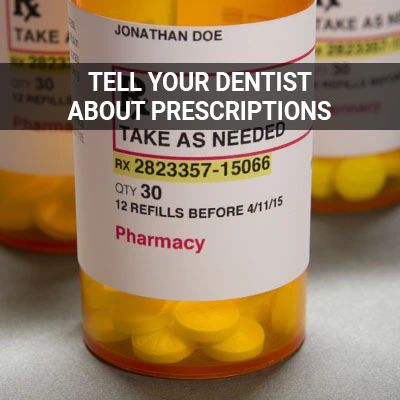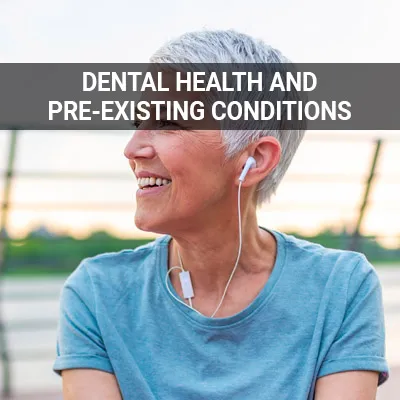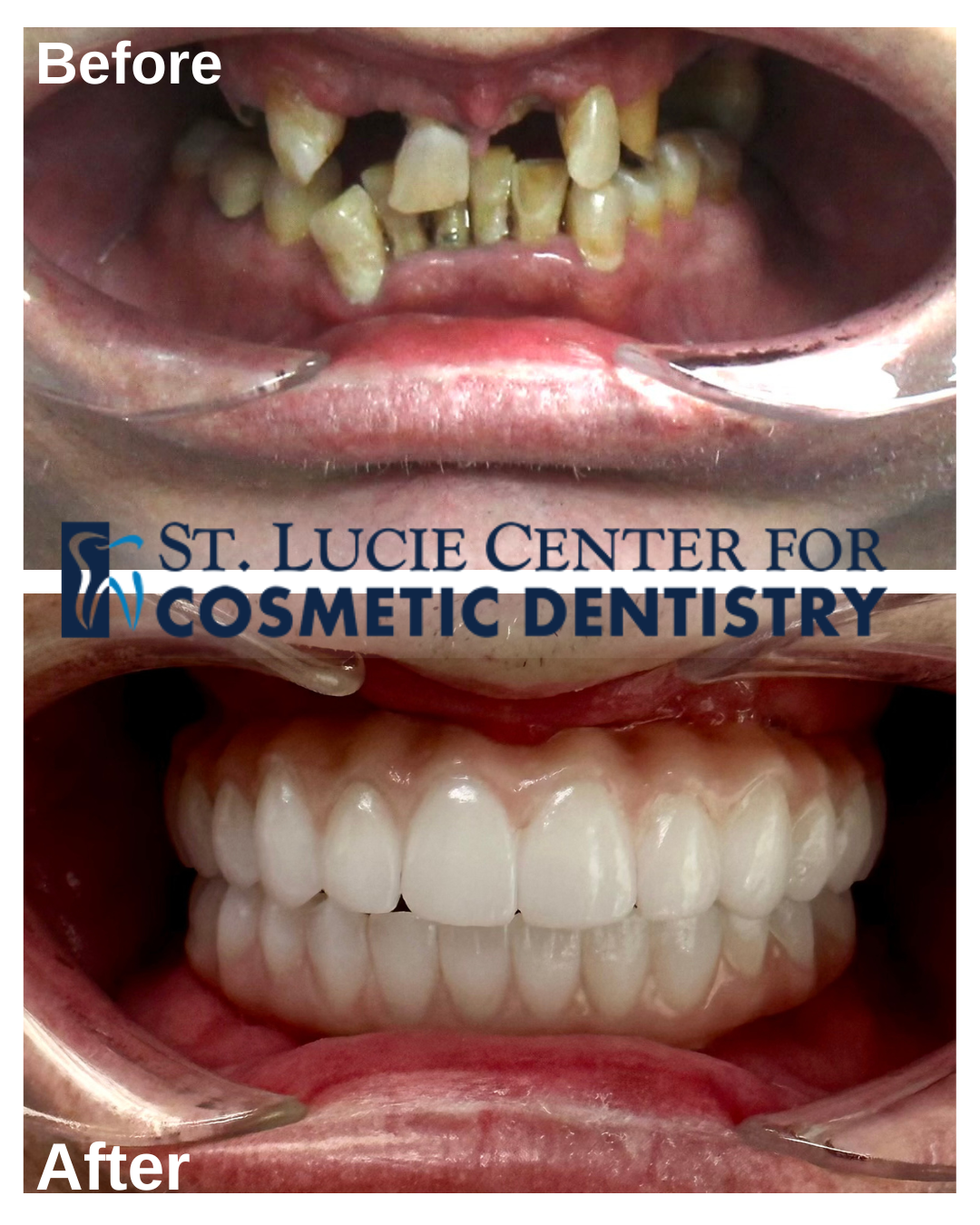Medications That Affect Oral Health Port St. Lucie, FL
For decades, dental and medical professionals have understood the connection between oral and general health and implemented it through complete health dentistry. Through extensive research, clinical trials, and experience, they found that many medications for various health conditions affect one's oral health. It is for that reason that dentists need to know a patient's medical history as well as a list of all medications they are taking.
Understanding the oral-systemic link and medications that affect both medical and dental conditions can significantly enhance a patient's well-being. We can also alter certain medications to fit the patient's needs and help curb their symptoms or side effects. Complete health dentists can offer guidance in navigating conditions and prescribe appropriate dental medications.
Complete health dentistry information is available at St Lucie Center for Cosmetic Dentistry in Port St. Lucie and the surrounding area. Our staff can help you better understand the oral-systemic health connection. Call us at (772) 242-4124 to schedule a consultation appointment today.
Cancer Medications
Cancer and chemotherapy medications can affect the teeth, gums, and jawbone. The American Dental Association (ADA) found that chemotherapy medications cause soft tissue reactions such as the development of oral sores, inflammation, and discoloration of soft tissues in the mouth. These reactions can lead to dry mouth syndrome, a condition that reduces the amount of saliva the mouth produces and can result in tissues becoming irritated and inflamed.
Dry mouth irritation can eventually lead to tooth decay, tooth loss, and gum disease as there is not enough remaining tissue in the gums. Drinking plenty of water and chewing sugarless gum can enhance saliva production and relieve some of the symptoms associated with dry mouth. Saliva substitutes are also effective in combating dry mouth.
“Dry mouth irritation can eventually lead to tooth decay, tooth loss, and gum disease as there is not enough remaining tissue in the gums.”
Behavior or Mood-Altering Drugs
Psychoactive medications refer to drugs that change the brain's function and alters a person's perception, mood, cognition, consciousness, or behavior. These medications include, but are not limited to, antidepressants, anti-anxiety, stimulants, antipsychotics, and mood stabilizers. Behavior and mood-altering drugs can cause dry mouth syndrome and increase the risk of tooth deterioration.
Dry mouth syndrome leads to tooth decay, tooth loss, and gum disease because of reduced saliva production. According to Better Health, lack of sufficient saliva production inhibits saliva from:
- Reducing the population of bacteria in the mouth
- Neutralizing mouth acids that cause tooth decay
- Re-mineralizing, which repairs tooth enamel (the hard surface layer that protects the tooth) that has been damaged by acids
- Clearing food particles from the teeth and gums
“Behavior and mood-altering drugs can cause dry mouth syndrome and increase the risk of tooth deterioration.”
Medication for Diabetes
Diabetes can affect any area of the body, including the mouth. In both types of diabetes, Type I and Type II, elevated blood sugar can cause mouth symptoms such as dry mouth, taste changes, delayed wound healing, and increased inflammation and bleeding.
However, once a patient begins taking medication for diabetes, such as metformin or insulin, they may notice a positive impact on their oral health. When blood sugar is well-controlled with diabetes medications and a patient receives regular dental care, they can reduce the risk of developing oral conditions such as periodontal disease.
“In both types of diabetes, Type I and Type II, elevated blood sugar can cause mouth symptoms such as dry mouth, taste changes, delayed wound healing, and increased inflammation and bleeding.”
Check out what others are saying about our dental services on Yelp: Medications That Affect Oral Health in Port St. Lucie, FL
Regulation Medication
Cardiovascular
Certain regulatory medicines, including cardiovascular medications, cause gum enlargement, also known as gingival overgrowth. The enlargement is caused by inflammation of the gums from plaque build-up. According to Pharmacy Times, about a million North Americans are affected by drug-induced gingival overgrowth. Complete health dentists can help cardiovascular patients regulate their medications while also limiting their gum overgrowth to prevent further oral complications.
Thyroid
Patients with a thyroid imbalance often experience dry mouth syndrome, burning mouth syndrome, increased cavity development, enlarged tongue and gums, slow-healing mouth sores, delayed or rapid tooth growth, and osteoporosis. Thyroid medications alter the taste senses as well, which could limit a patient's nutritional intake. Drugs that balance hormone levels may increase incidences of mouth sores, tooth decay, and difficulty swallowing.
“Certain regulatory medicines, including cardiovascular medications, cause gum enlargement, also known as gingival overgrowth.”
Questions Answered on This Page
Q. How do cancer medications affect oral health?
Q. How can psychoactive medications result in tooth loss?
Q. How do regulatory medications affect oral health?
Q. How can I maintain good oral health while taking medication?
Q. How does medication for diabetes impact oral hygiene?
People Also Ask
Q. How does oral health affect the gut and immune system?
Q. How do preexisting conditions affect dental care?
Q. Why is preventative care important? How can it save you money?
Q. Why is it important to find the right general dentist?
Q. What is the link between heart disease and oral health?
Q. What pre-existing conditions are affected by dental health?
Q. What family members may need extra help with their oral hygiene?
Keeping Mouth Healthy While on Medication
It is important to know and understand the side effects resulting from a particular medication and how to reduce or eliminate them in an effort to maintain good oral health. Taking appropriate hygienic measures also decreases many general health symptoms as much of the bacteria in the mouth is cleared before entering the body.
Depending on the health condition, complete health dentists can offer insights on how to relieve dry mouth, enlarged gums, abnormal bleeding, taste changes, tissue reactions, bone loss, discoloration, and thrush infection. In most cases, patients cannot decide against taking medications, but dentists may lower their dosage or alter the medication to suit their oral needs. Patients should seek medical and dental advice regarding medications while also maintaining a proper oral hygiene regimen.
“In most cases, patients cannot decide against taking medications, but dentists may lower their dosage or alter the medication to suit their oral needs.”
Frequently Asked Questions About Medications Linked to Dental Health
Q. What can I do to improve my oral health while taking psychotropic medications?
A. Once you are aware of the connection between your medications and your oral health, you can make changes to your routine that can positively impact your dental condition. According to the Oral Health Foundation, changes as simple as reducing your sugar intake, and brushing with fluoride toothpaste, can help mitigate the impact of your medications.
Q. What kinds of heart medications can cause changes in my gum tissue?
A. The most common cardiovascular medication that contributes to gum changes is known as a calcium channel blocker. Examples of calcium channel blockers include verapamil, amlodipine, and nifedipine. If you are noticing changes in your gums from a medication, your dentist may be able to discuss an alternative medication with your physician.
Q. What types of medications affect oral health?
A. Many different types of medications affect the oral cavity. It also largely depends on the form and dosage. Among them are antihistamines, decongestants, painkillers, high blood pressure medications, muscle relaxants, drugs for urinary incontinence, Parkinson's disease medications, and antidepressants.
Q. What can my dentist do if I am taking a medicine that affects my oral health?
A. Your total health dentist considers your oral-systemic connection when conducting assessments of your oral health. If you are taking a medicine that impacts your oral health, your dentist may be the first clinician to identify this. If we do so, we will work with your prescribing physician to make changes or adjustments as needed. We can also consider medications, such as saliva substitutes to help with symptoms.
Q. Does the dentist work with primary care doctors to alter medications?
A. Patients who require treatment may need to alter their medications in order to undergo the procedure. We can communicate with your doctor to suggest certain medications that are safer or measures to take until you recover from the procedure. We can also work with you on questions to ask your doctor about oral medications.
Dental Terminology
Learn More Today
If you are interested in better understanding complete health dentistry and effects of medication, call us at 772-242-4124 to set up an appointment.
Helpful Related Links
- American Dental Association (ADA). Glossary of Dental Clinical Terms. 2024
About our business and website security
- St Lucie Center for Cosmetic Dentistry was established in 1984.
- We accept the following payment methods: American Express, Cash, Check, Discover, MasterCard, and Visa
- We serve patients from the following counties: St. Lucie County
- We serve patients from the following cities: Port St. Lucie, River Park, White City, Fort Pierce, Fort Pierce South, St Lucie West, Tradition, Palm City, Jensen Beach, and Stuart
- Norton Safe Web. View Details
- Trend Micro Site Safety Center. View Details
Back to top of Medications That Affect Oral Health














